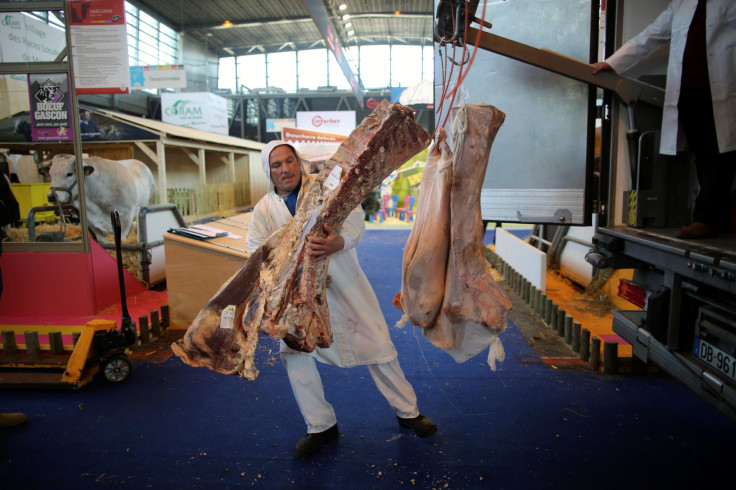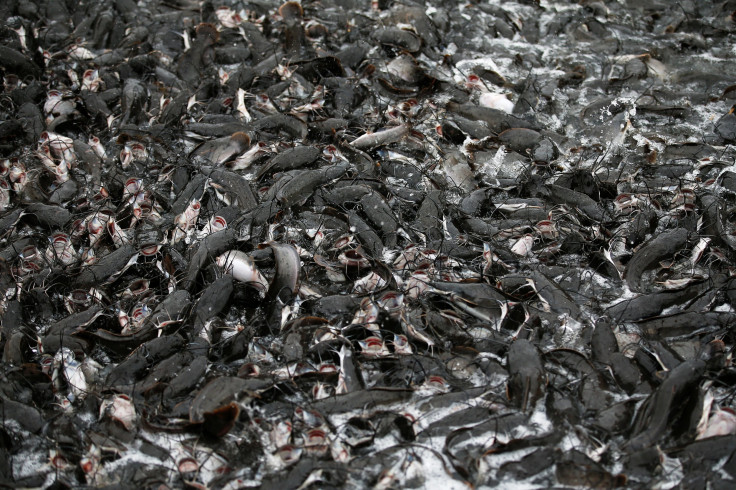Industrial Beef, Farmed Catfish Worst Foods For Environmental Impact, Study Finds

Not all foods are created equal, especially when it comes to the environmental impact of meat production. Industrial beef and farmed catfish take the biggest toll on the environment, while small fish caught in the wild and farmed shellfish and mollusks cause the least damage, a study had found.
Researchers used the standard of producing 40 grams of protein — the daily recommended protein serving — as the base for looking at four different metrics of how various types of production of different foods impact the environment. The four metrics were the amount of energy used, emissions of greenhouse gases, the potential for contribution of excessive chemicals — in the form of nutrients, such as fertilizers — to the environment, and the potential to contribute to acid rain by emitting specific substances.
They looked at all stages of the food products’ lives, called “cradle-to-grace” analysis. There are about 300 different assessments for such analyses when it comes to animal food production, and the study’s authors selected 148 of those, choosing ones that were comprehensive and not too specialized.
Livestock farming at the industrial scale had the worst impact in the acid rain category, due to the emission of methane from manure. It also scored poorly when it comes to excessive nutrients being released into the environment. Industrial beef production, as well as aquaculture catfish, produce about 20 times more greenhouse gases than producing chicken, or salmon and mollusks that have been farmed. Seafood aquaculture, including catfish, tilapia and shrimp, used the most energy, even more than livestock production.
On the other hand, producing mollusks like oysters, mussels and scallops in aquaculture absorbs excess nutrients that would otherwise harm the ecosystem. It also emits fewer greenhouse gases. Catching fish in the wild requires no fertilizers of any sort, and the biggest environmental factor there is the fuel used by the fishing boats. The exact amount of fuel consumed varies greatly, depending on the type of fishing method used.
“From the consumer’s standpoint, choice matters. If you’re an environmentalist, what you eat makes a difference. We found there are obvious good choices, and really obvious bad choices,” Ray Hilborn, a University of Washington professor in the School of Aquatic and Fishery Sciences who was lead author of the study, said in a statement Monday.

Selective seafood choices of diet, including both aquaculture and wild capture, were found to have a lower environmental impact than even vegetarian and vegan diets.
“I think this is one of the most important things I’ve ever done. Policymakers need to be able to say, ‘There are certain food production types we need to encourage, and others we should discourage.’” Hilborn said.
Other factors like water demand, pesticide use, antibiotic use and soil erosion were also mentioned in the study, but were not used extensively owing to the paucity of data. In the future, the researchers also want to consider the impact of food production on biodiversity — another important ecological marker.
The study was published online Monday in the journal Frontiers in Ecology and the Environment.
© Copyright IBTimes 2024. All rights reserved.





















